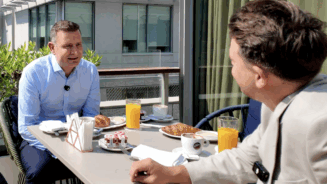Carolyn, tell me about your role based on the Isle of Man?
I live on the Isle of Man and spend about 75% of my time there. My role is to head our collective investment funds business, which involves day-to-day oversight management, thinking about business development and corporate governance, and how we grow that side of the business. I interact quite closely with the fund boards and sit on some of those boards as well, so it is quite a wide management role.
On the regulatory front, what is particularly challenging right now?
Ucits V has just gone live, which has meant a bit of work on our Irish-domiciled funds but nothing too significant. Looking ahead, funds we have based in the Isle of Man will come under the Alternative Investment Fund Managers Directive (AIFMD). The ability to market those funds into Europe in future is something we are keeping a watchful eye on.
The European Securities and Markets Authority is currently considering the Isle of Man in the second wave of considerations. Jersey and Guernsey have already gone through, so at this point we are awaiting the outcome, but the funds we market more to the retail environment we have domiciled in Ireland. They are within the scope of Europe already for that purpose.
What prompted Thomas Miller to domicile funds in Dublin?
About three years ago we had a review of our collective investments business, as at that time everything was based in the Isle of Man. We acknowledged this was just as our AIFMD was coming through. We wanted to grow some of our funds into the retail market and obviously TMI has a presence in the UK, where it made sense to be marketing and distributing.
"It has been important for us to get our funds accessible through the platforms and the life companies people want to use,"
We looked at various jurisdictions and there were pros and cons with each, and settled on Dublin, with its proximity to the Isle of Man. We found good people to work with and went for a platform solution in the end.
It is an umbrella structure, which is being used a lot more widely by investment managers who really want to focus on the investment and asset management work, and don’t want to get too tied up with the administration of setting up. It converted into an Icav (Irish collective asset-management vehicle) in March.
What does the Dublin Icav facilitate that you did not have before?
For the overall structure, it means managers can promote into the US or accept US investors. It is not something TMI has on its agenda but it means if there are other managers on the platform that wish to do that, it would grow the overall size of the platform. There are certain shared costs for running the umbrella scheme overall. As all the funds grow, it’s of equal benefit to ourselves, and our funds, to reduce the overall costs.
How has your distribution strategy evolved during the past year?
The funds in Dublin went live in June 2015, and it was a big project to transition them over to Ireland and move existing investors. Our strategy over the past eight or nine months has been UK-centric. We had the funds recognised in the UK by the FCA so we could promote them into the UK market.
Ucits approval does allow passporting but you still then need to get registered in every jurisdiction you go to. As the UK is our home market, and we already have lots of connections and networks there, it makes sense to focus on that first of all. You can dilute your message if you spread yourself too thin.




